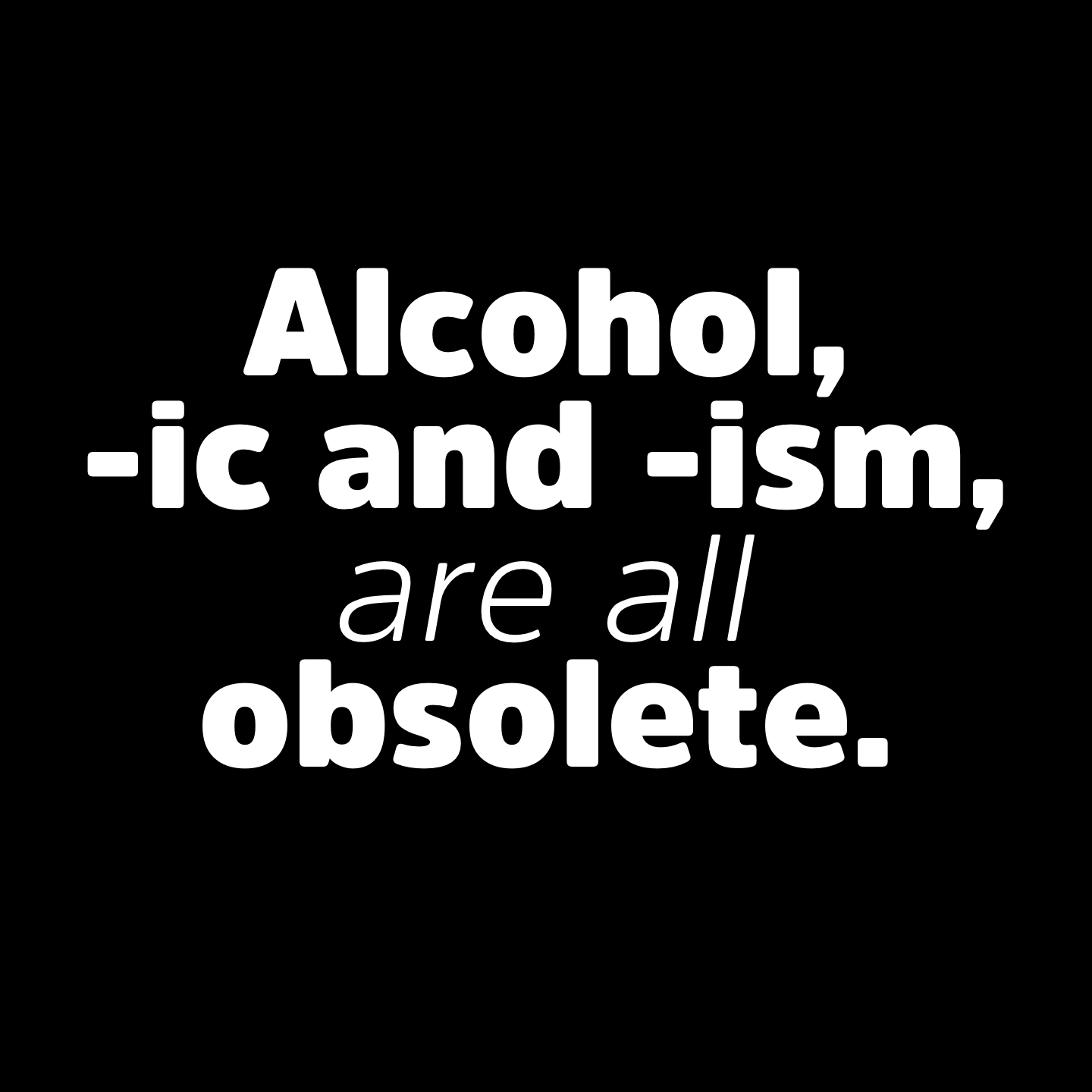What I’ve learned from my own experience is that alcohol, “alcoholic” and “alcolholism” are all obsolete.
text from video above ⬆️
We’ve learned a lot about alcohol in recent years. We’re coming to understand it in the context of modern neuroscience and holistic well-being, and that it affects us all in the same basic ways.
Wanting to be your full self is not a disease.
You know, words wear out. It’s time for some new ways to talk about what we’re drinking, and how it makes us feel.
I didn’t stop drinking because I was drinking too much. In fact, I didn’t stop drinking as a never-again sort of thing. I live by what feels right to me, and what happened to me is that my intuition finally told me clearly that drinking was co-involved with depression, and that I wanted to be my whole self, every day. I stopped drinking because it was no longer what I wanted to do.
We all have the freedom to align our behavior with our own joyful well-being. At the highest level, this is about living well.
The idea that drinking alcohol is normal is not something we need to accept as a fact. It’s a social construct, an idea—and ideas change all the time. This particular idea is in fact changing very rapidly. Remember smoking? Remember preservatives? Remember the horse-drawn carriage ;? We’ve already passed peak alcohol, and while I’m certain that it won’t disappear anytime soon, alcohol is becoming obsolete for more and more people.
Decades of health consciousness are finally catching up with the normalcy of alcohol use, and many people are challenging their own beliefs and habits on the basis of wanting greater health and wellness in all aspects of our lives. It’s not about “sobriety” or “mocktails”, let alone “abstinence” or “recovery” — it’s about living fully and in the best way that we can, in our natural state of being as human animals. Drinking alcohol ages us prematurely, wastes time, energy and money, courts anxiety and depression, prevents us from building authentic connections with others, and perhaps most importantly, blocks our most precious human resource, our second sight.

By joining those of us that have chosen to live alcohol-free, you are joining a revolution in progress, a change for the better and for the greater good. Already, 20-30% of adults choose not to drink, and that number is growing each day.


